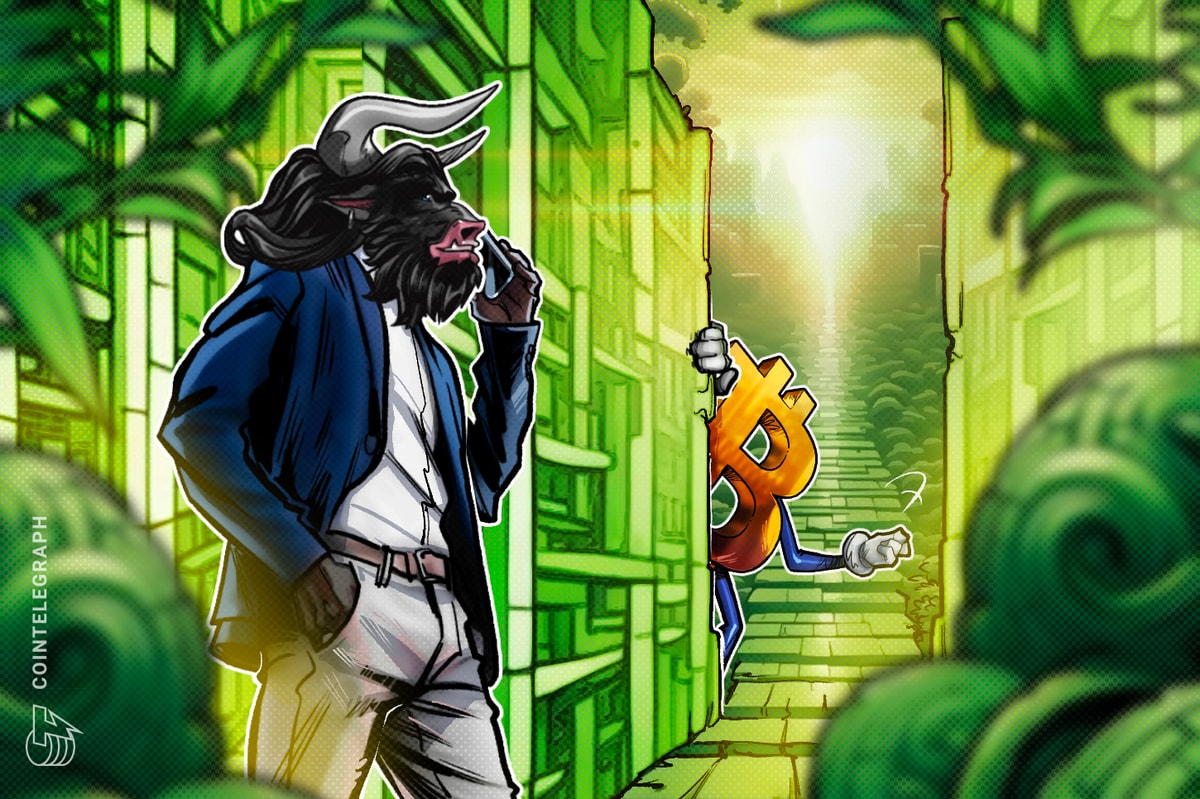Cointelegraph would like to offer you a non-exhaustive, but attentively collected list of reading - recommendations from those thought-leaders, whom we admire, and some editorial favorites.
Brock Pierce, David Orban, Wang Binsheng and others contributed to this top-20 list, which includes works related to the crypto and Blockchain issues, but also those that could be useful as an inspirational tool for venture businessmen and women, fans of innovations and fintech dreamers.
Reading is always a source for thinking and feeling, while thoughts and emotions are the base of creating. So we wish you always find time in the new 2018 year to get creative energy out of printed, written, digital versions of novels, essays, interviews, etc. Enjoy the reading!
About BTC: Bitcoin: A Peer-to-Peer Electronic Cash System by Satoshi Nakamoto (2009)
 |
“There is one thing, in the space, in the Blockchain space, that I recommend everyone to read. It's super easy to understand. It's written in very simple words. Each word has meaning. It's a Bitcoin paper by Satoshi Nakamoto. It's eight pages and everyone should read it! At least the first pages. It's super easy! People think that it's not easy. People think they start the grid net and they're gonna be "Oh my god, I don’t understand anything" but it's amazingly easy to read. And that's what you need to do when you're in this space. And it’s very inspiring as well.”
- Salome Parulava, Moeco
About Blockchain: Blockchain for Dummies by Tiana Laurence (2017)
 |
“First of all, I didn’t read quite a long time. I didn't really have time to read books because of all of these Blockchain developments. But recently, I realized that there's a really out of roots kind of expectation of people for cryptocurrency. But for you as an investor - to make a right decision on cryptocurrency - you need to understand the fundamental of Blockchain first. So, please, go ahead and read “Blockchain for dummies.” That's got to be a good starting book for people to really understand what is the under layer, technology, what is Bitcoin made of. Then, maybe, you have a better judgment - don't just listen to anyone that Bitcoin is good or anything ever is good. You just learn about the technology first!”
- Cris Tran, QRC Group
About building software: The Mythical Man-Month by Frederick P. Brooks, Jr. (1975)
 |
“It’s actually an old-school book that’s come up. It always comes up irrelevant. I’ve just finished re-reading it on a flight. It’s not a Blockchain book, it’s actually much older than that – it’s called “The Mythical Man-Month” – it’s an explanation and an exploration of what it takes to successfully build software. I think the author really understands the best software. We like to talk about it, I think, we like to teach it in many ways as a hard science, but the best software is really art. The code is just a medium, so rather than painting you use code to express yourself artistically through software. I think that he has a very good grasp of that nuance, but also it’s a very clear-headed approach to the fact that you’re managing, you’re working with a large number of developers, everyone with their own understanding. It can be very hard to deliver things on time, schedule… and he talks about his lessons – he was one of the very first operating system designers. He had done software called OS/360 which predates us by 13 years. He had managed huge teams and, actually, he talks very frankly about his failures and lessons he learned. He knew the right way to approach building projects, so if you haven’t read that one, I highly recommend it.”
- Joshua Lavin, EOS
About money: The Denationalization of Money by F. Hayek (1976)
 |
In this book from 1976, Friedrich Hayek advocated the establishment of competitively issued private money.
According to Hayek, instead of a national government issuing a specific currency, use of which is imposed on all members of its economy by force in the form of legal tender laws, private businesses should be allowed to issue their own forms of money, deciding how to do so on their own.
Recommended by Wang Binsheng, investor, advisor at Blockchain Development Organization
About crypto: Before Babylon, Beyond Bitcoin (2017); Identity of the New Money (2014) by Dave Birch
 |
“It's a recent book by super-smart guy. His name is Dave Birch. I love the author: his talks and his books, he helped me. He has written several books and they're all amazing. The previous book was called "Identity the New Money" - full of insights, very inspirational, so I recommend it!”
- Salome Parulava, Moeco
About revolutionizing: Stealing Fire by Steven Kotler & Jamie Wheal, (2017)
 |
“A book called Stealing Fire is the one I would recommend right now. <...> Hopefully, we’re not spending too much time dwelling on the past. We can learn from the past, but the past is history. There’s no changing that and it’s the future that’s a mystery and where the fun stuff lies.”
- Brock Pierce
About digital currencies: Blog of Nick Szabo
Nick Szabo is a computer scientist, legal scholar and cryptographer known for his research in digital contracts and digital currency. He is a very prolific creator: among other things, for example, in 1998, he designed a mechanism for a decentralized digital currency called "Bit Gold," never implemented, but precursing the Bitcoin architecture. He has also developed the phrase and concept of "smart contracts."
In his blog he approaches, in his own words, “an unending variety of topics” - economics, law, history and security.
About new money: Digital Gold: Bitcoin and the Inside Story of the Misfits and Millionaires Trying to Reinvent Money by Nathaniel Popper (2016)
 |
What happens when a journalist digs into crypto using his best reporting and story-telling skills? Answer: an unusual story of Bitcoin and the rise of its technology through the eyes of the movement’s colorful central characters, including an Argentinian millionaire, a Chinese entrepreneur, Tyler and Cameron Winklevoss, and its elusive creator, Satoshi Nakamoto.
Digital Gold by The New York Times technology reporter Nathaniel Popper is one of the best introductions to Bitcoin for the wide audience. The author provides deep view into industry from outside. For those who are already in it and don’t wish to refresh history created by Satoshi Nakamoto, Gavin Andresen, Erik Vorhees, Roger Ver, and the Winklevoss Twins, this book could be given to your mom - to spare quite a lot of time of explaining what we are actually doing here.
About wealth: Videolectures by Andreas M. Antonopoulos
“Actually, the one that the most impacted me was the guy named Andreas. He is actually Greek. You can search on YouTube. He is passionate about Bitcoin and Blockchain technology. And what it can bring to change the world and eliminate the trust between people and the government. Basically, corrupt this whole system by stealing your wealth, you know? What he basically suggests is stealing your wealth in a stealth mode. So you have a one thousand today, you have one thousand tomorrow - actually your wealth is still the same. But, for one thousand today you cannot buy the one thousand tomorrow's goods because of the inflation. Because they are printing money, they are stealing wealth in a stealth mode. You cannot see it, cannot complain because you have one thousand now, you have one thousand tomorrow – doesn't change. Basically, people don't see it but this guy, he saw the problem and explained quite well. That is what made me inspired. We should go and explore more about Blockchain and bring the services and products to the market.”
- Woanjen Tang, Orioncoin
About decision-making: Non-Cooperative Games by John Forbes Nash (1950)

The only person to be awarded both the Nobel Memorial Prize in Economic Sciences and the Abel Prize, John Nash inspired a Hollywoodian movie A Beautiful Mind, that is also worth watching.The theory developed by the mathematician J. Nash became fundamental for economics, politics and management. Nash equilibrium, presented in his Princeton University dissertation basically talks about interaction of two or more players in which each player is assumed to know the equilibrium strategies of the others, and no player has anything to gain by changing only his own strategy. Nash's work has provided insights into the factors that govern chance and decision-making inside complex systems found in everyday life.
About China: Dealing with China by Henry Paulson (2015) and One Hour in China by Jeffrey Towson and Jonathan Woetzel (2017)
 |
“To be honest, this is maybe not so specific to Blockchain and cryptocurrency, but one of my favorite personal books… Well, actually, I have two. The first one is “Dealing with China” by Henry Paulson. He was a former Goldman Sachs CEO and then-Treasury Secretary under George W. Bush. He talked about his experiences and how he did business with China – and this is really inspired a lot of things I’m doing. The second one would be “One Hour in China” book by Jeffrey Towson and Jonathan Woetzel. Jeffrey Towson is a professor at Peking University and Jonathan Woetzel is a partner at McKinsey in Shanghai. They wrote a book that condenses everything you need to know about China into one hour. It started inspiring me to write a lot about Chinese consumers. I do a lot of writings. I write for LinkedIn China, I write for Cointelegraph. Those two books formed me in what I’m trying to do.”
- John Patrick Mullin
About Humanity in XXI century: Homo Deus by Yuval Noah Harari (2015)
 |
“I would not hesitate recommending Homo Deus by Harari which is a very well written, very crisp vision of the future and our challenges as we redefine what it means to be human in the XXI century.”
- David Orban, advisor to the Singularity University
About the future of our world: Republic by Plato (380 BC)
 |
“Interestingly enough, I’ve been going back to Plato lately. Plato’s “Republic” is an ancient dialog about if we were going to make a new country, what things would we include and what things would we not include. Talking about developing new communities, I think there are a lot of applications for philosophy in Blockchain and AI. Because we’re building the future of our world, what are we going to keep and what are we not going to keep? Recently I saw an interview with Vitalik, the famous guy in the Ethereum. One of the things he loves about his job, as he said is, “I get to apply philosophy and technology every day.” There would be my recommendation. Go back to the classics.”
- Daniel Finn, Smartmesh
Again about BTC:
Why Bitcoin Matters? by Marc Andreessen (2014);
Bitcoin and the Future of Payments Technology Fireside Chat with Lawrence H. Summers (2015);
Interview with Lloyd Blankfein, CEO Goldman Sachs (2015)
“So there's not a lot of books that I get inspired. But I do like interviews and articles from well-established, respected people. How they look at cryptocurrency and Bitcoin. So, for example, Marc Andreessen, who's the founder of Andreessen Horowitz, which is one of the number one or top in the world, did a New York Times article. I think it was around 2013. “Why Bitcoin Matters?” To the state, I think it's one of the best articles. I think everybody should google it. It’s still relevant! Four years later! And a few others like there's Larry Summers who used to be in the Ministry of Finance and made a wonderful speech about Bitcoin and cryptocurrency and he's so knowledgeable and that's a video people should try to find. And most recently the CEO of Goldman Sachs Lloyd Blankfein. He talked about that he's not skeptic or skeptical of anything new. But he believes that there's a big opportunity in Bitcoin. So when you look at that, you know that mainstream finance will come into this space. Especially like Goldman Sachs. So it was a CNN interview of Lloyd from Goldman Sachs. And those are things and it's all small snippets. I think people should watch that.”
- Mike Kayamori, QUOINE
About not panicking: The Hitchhiker's Guide to the Galaxy by Douglas Adams (1981)
 |
One of the funniest and intelligent views on futurism - the Hitchhiker’s Guide became classics for those who want to see beyond the present. The aphoristically laconic Paranoid Android, praised by Radiohead song, galaxy travelers and their nostrum - a towel, the motto for any possible situation that could happen - ‘Don’t Panic,’ famous 42-answer to the ultimate question of life. The story features won’t leave you indifferent to the space saga even if your most comfortable zone is still the earth.
The novel, an adaptation of the first four parts of Adams' radio series of the same name, has inspired then a series of interpretation -- from a videogame to the famous movie in 2005.
About dreaming: Commencement Address at the Stanford University by Steve Jobs (2015)

Steve Jobs was undoubtedly one of the greatest visionaries of the century. CEO and co-founder of Apple Computer and Pixar Animation Studios already suffered from cancer at the time he addressed the graduates of the Stanford University at its 114th Commencement on June 12, 2005. In this quarter-hour speech, he managed to talk about setbacks - including death itself - as opportunities - and about dreams as the most important motivation for development.
If you have not seen the address, you should definitely fill in this cultural gap, if yes - we would recommend spending time to rewatch it ‘cause it is maybe the best inspirational rhetorics ever made.











